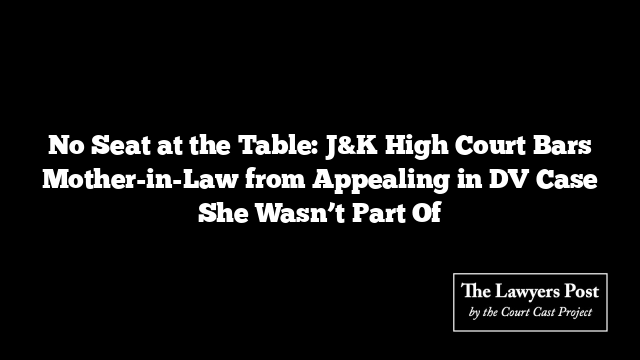In a clear-cut ruling on who gets to challenge what under the Domestic Violence Act, the Jammu & Kashmir and Ladakh High Court shut the courtroom doors on a mother-in-law who wasn’t even a party to the original proceedings.
The woman had attempted to appeal an order passed by a Judicial Magistrate in a domestic violence case initiated by her daughter-in-law. The Sessions Court had already turned her away, saying she didn’t qualify as an “aggrieved person” under Section 20(a) of the DV Act. Unwilling to let it go, she took the matter up to the High Court.
But Justice Vinod Chatterji Koul wasn’t persuaded. He ruled that because the mother-in-law was neither summoned in the original case nor directly affected by the Magistrate’s decision, she simply had no standing to file an appeal under Section 29.
“Admittedly, petitioner does not fall within the definition of aggrieved person, therefore, is not entitled to file appeal as she is neither the party before the Trial Court nor has order been passed against her,” the Court held bluntly.
The argument that her relationship as mother-in-law somehow gave her appellate rights didn’t hold up. The High Court clarified that appellate relief under Section 29 is reserved strictly for those directly impacted by the trial court’s order.
That said, the Court didn’t entirely lock the door. The mother-in-law was given the option to file an application before the trial court if she truly believes she should be made a party to the proceedings.
She was represented by advocates SN Ratanpuri and Fiza Khursheed.





